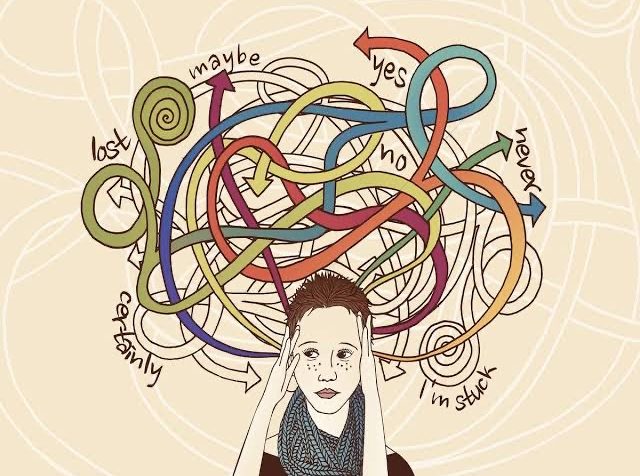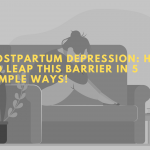What Are Types Of Anxiety Disorders? What exactly anxiety disorder is? are some of the questions that you are having right now. Continue reading the following article for more information.
If you’re a student, you ought to take a look at the article Why and Why does a student know about mental health?
What Are Anxiety Disorders?

Anxiety is a natural feeling. It’s the brain’s way of adapting to stress and warning you about imminent danger.
All experiences anxiety from time to time. When confronted with a challenge at work, before taking a test, or before making a major decision, for example, you might be concerned.
Anxiety is common on occasion. Anxiety conditions, on the other hand, are separate. They’re a series of psychiatric disorders that cause uncontrollable anxiety and terror. Excessive anxiety can cause you to avoid work, education, family events, and other social circumstances that may intensify or worsen your symptoms.
Many people with anxiety disorders will learn to control their emotions with the right medication. Now let us know What Are Types Of Anxiety Disorders.
What are the five common types of Anxiety Disorders?
Many individuals who suffer from anxiety have signs of more than one anxiety disorder, and they may even suffer from depression. If you’re feeling fear, it’s important to get treatment as soon as possible. Your symptoms do not go away on their own, and if you don’t treat them, they might take over your life.
Anxiety comes in a number of varieties. The following are the most common:
Generalized Anxiety Disorder (GAD)

GAD is characterized by intense anxiety over daily problems that are not usually a source of endless dread for most other people. For eg, you may be afraid that when walking to work, someone would unwittingly chuck a large object out of a window above you, knocking you out. Although this is a distinct possibility, it is highly doubtful.
People with Generalized Anxiety Disorder are prone to excessive concern about certain things. You may also have regular heart palpitations or worry-inducing feelings.
Symptoms of a generalized anxiety disorder include:
- Feeling anxious, agitated, or tense
- Being quickly exhausted
- I’m having trouble concentrating; my mind is blank.
- Getting annoyed
- The tension of the muscles
- Controlling worry feelings is difficult.
- Having sleep issues, such as inability to fall or remain asleep, restlessness, or unsatisfactory sleep
Social Anxiety Disorder
For fear of being viewed by others, you might be reluctant to leave your house due to social anxiety disorder, also known as social phobia. People with social phobia can find it difficult not only to sustain friendships, but also to hold down a career, go grocery shopping, or even collect mail from the mailbox. If you have Social Anxiety Disorder, you are continually concerned with what other people think about you, to the point that you might avoid social experiences entirely.
Panic Disorder

Panic disorder is characterized by frequent, sudden panic attacks. Panic attacks are brief bursts of acute fear that begin suddenly and peak within minutes. Attacks may come out of nowhere or as a result of a stimulus, such as a feared target or circumstance.
People can experience the following symptoms during a panic attack:
- Heart palpitations, a pounding pulse, or a fast heartbeat are also symptoms of an accelerated heart rhythm.
- Sweating is a normal phenomenon.
- Shaking, trembling
- Shortness of breath, suffocation, or choking sensations
- Feelings of doom and gloom
- Feelings of being uncontrollable
Post Traumatic Stress Disorder (PTSD)

Since you’ve been through something unusual that has “shocked” the life, you can develop Post Traumatic Stress Disorder. You may have daydreams or flashbacks about the incident, and you may be unable to carry out daily activities as a result of the frustration and sadness that are common PTSD signs.
PTSD may be triggered by a series of incidents, such as military service or being the victim of rape or childhood assault.
Obsessive-Compulsive Disorder (OCD)
OCD is an anxiety condition marked by repeated, unwanted feelings (obsessions) and/or repetitive habits (compulsions). Hand washing, numbering, inspecting, and cleaning are common repetitive activities done in the hopes of avoiding or removing obsessive thoughts. However, following these so-called “rituals” only offers immediate relaxation, and failure to do so greatly raises anxiety.
Conclusion:
Living with an anxiety disorder can be difficult and stressful. So you must have knowledge about What anxiety order is and What Are Types Of Anxiety Disorders.You can feel exhausted and terrified by excessive concern and anxiety. You have taken the first step in getting rid of the concern after you consulted with a doctor about your symptoms.
The best therapy that works for you will take some time. You may require many kinds of medication if you have more than one anxiety disorder. A mixture of medication and therapy is best for most people with anxiety disorders. You can learn how to handle and succeed with good care and treatment.







